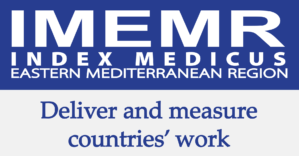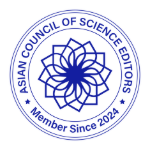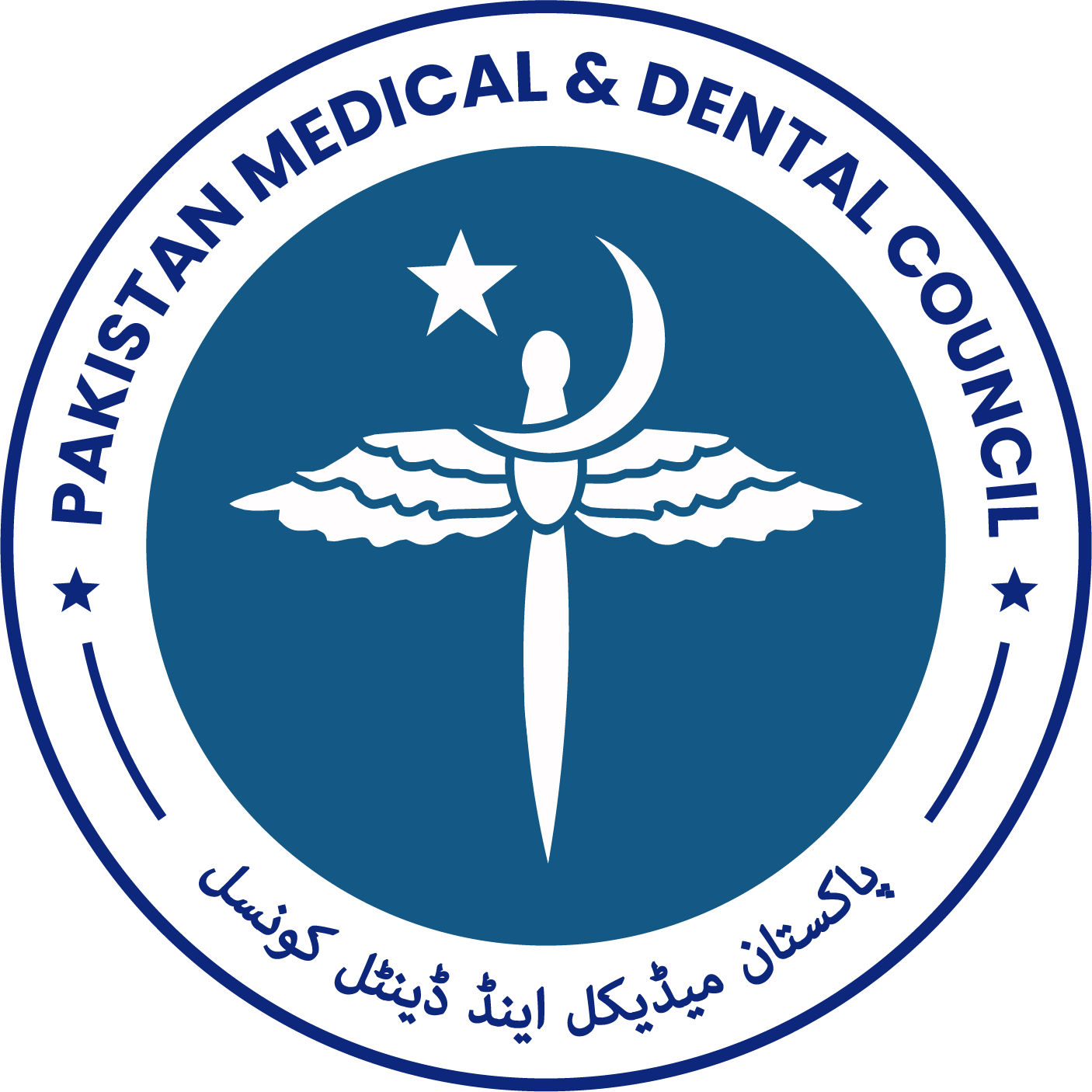Ethical and Moral Issues in Undergraduate Medical Education: An Exploratory Study
DOI:
https://doi.org/10.53685/jshmdc.v3i2.109Keywords:
Ethical issues, Moral issues, Medical students, UndergraduateAbstract
Background: Ethical and moral values form the basis of the environment in any academic institution.
Objectives: This study aimed to explore the ethical and moral issues faced by medical students during their undergraduate medical education in Pakistan.
Methods: This qualitative exploratory study was conducted at ABWA Medical College, Faisalabad. It included thirteen semi-structured, one-to-one interviews of volunteering undergraduate medical students of Punjab, Pakistan, from September 2021 to February 2022. The interview invitation was sent electronically to social media groups. Member checking of transcribed interviews was done, and data were analyzed thematically using Atlas-ti software by two independent researchers.
Results: Thematic data analysis led to the formation of 28 codes, 13 subthemes, and 3 main themes. Based on the social constructive approach, three main themes were categorized into ethical issues in (1) academic, (2) social, and (3) clinical contexts.
Conclusions: The results showed that undergraduate medical students face a myriad of ethical and moral disruptions during their undergraduate study period at medical college. Much awareness about identifying and dealing with such issues is recommended to bring more quality to the program.
References
Chowdhury M. Emphasizing Morals, Values, Ethics, and Character Education in Science Education and Science Teaching. MOJES. 2016; 4(2): 1–16.
Karim MR, Billah M. A Study on Moral Education Planning Program in Bangladesh: Based on Total Quality Management. Asian J Educ Soc Stud. 2021; 25(1): 9–23. doi: 10.9734/less/2021/v25i130589. DOI: https://doi.org/10.9734/ajess/2021/v25i130589
Salice A. Communities and values. Dietrich von Hildebrand’s social ontology. In The phenomenological approach to social reality. 2016; 6: 237-257. Springer, Cham. doi: 10.1007/978-3-319-27692-2_11 DOI: https://doi.org/10.1007/978-3-319-27692-2_11
Anderson DR. Character Education: Who Is Responsible? J Instr Psychol. 2000; 27(3): 139.
Riaz S, Sabahat N. Development of the Attitude Atonement Scale for Adults. J Behav Sci. 2022; 32(1): 165–188.
Dubaibai H, Adelstein BA, Taylor S, Shulruf B. Definition of professionalism and tools for assessing professionalism in pharmacy practice: A systemic review. J Educ Eval Health Prof. 2019; 16: 22. doi: 10.3352/jeehp.2019. 16:22 DOI: https://doi.org/10.3352/jeehp.2019.16.22
Rose A, George K, Arul Dhas T, Pulimood AB enjami., Kang G. Survey of ethical issues reported by Indian medical students: basis for the design of a new curriculum. Indian J Med Ethics. 2014; 11(1): 25–28. doi: 10.20529/IJME.2014.007 DOI: https://doi.org/10.20529/IJME.2014.007
Desalegn AA, Berhan A. Cheating on examinations and its predictors among undergraduate students at Hawassa University College of Medicine and Health Science, Hawassa, Ethiopia. BMC Med Educ. 2014; 14(1): 1–11. doi: 10.1186/1472- 6920-14-89 DOI: https://doi.org/10.1186/1472-6920-14-89
Desalegn AA, Berhan A, Berhan Y. Absenteeism among medical and health science undergraduate students at Hawassa University, Ethiopia. BMC Med Educ. 2014; 14(1): 1–11. doi: 10.1186/1472-6920-14-81 DOI: https://doi.org/10.1186/1472-6920-14-81
Lefkowitz A, Meitar D, Kuper A. Can doctors be taught virtue? J Eval Clin Pract. 2021; 27(3): 543–548. doi: 10.1111/jep.13398 DOI: https://doi.org/10.1111/jep.13398
Smith LG. Competitiveness, Peer Pressure, and Career Choice. N Engl J Med. 1993; 329(17): 1281–1282. Doi: 10.1056/nejm199 310213291722 DOI: https://doi.org/10.1056/NEJM199310213291722
Hur Y, Lee K. Identification and evaluation of the core elements of character education for medical students in Korea. J Educ Eval Health Prof. 2019; 16(4): 32–36. doi: 10.33 52/jeehp.2019.16.21 DOI: https://doi.org/10.3352/jeehp.2019.16.21
Mukhtar F, Daud S, Manzoor I, Amjad I, Saeed K, Naeem M, et al. Bullying of medical students. J Coll Physicians Surg Pakistan. 2010; 20(9): 579–580.
Hur Y, Lee K. Core elements of character education essential for doctors suggested by medical students in Korea: A preliminary study. J Educ Eval Health Prof. 2020; 17: 43. Doi: 10.3352/jeehp.2020.17.43 DOI: https://doi.org/10.3352/jeehp.2020.17.43
Sahina Y. Development of Professional Dental Ethics Course with Additional Islamic Perspective and Dental Students’ Feedback. Pakistan Oral Dent J. 2016; 36(2): 270–276. DOI: https://doi.org/10.15761/DOCR.1000161
Souza AD, Vaswani V. Diversity in approach to teaching and assessing ethics education for medical undergraduates: A scoping review. Ann Med Surg. 2020; 56: 178–185. doi: 10.1016/j.amsu.2020.06.028. DOI: https://doi.org/10.1016/j.amsu.2020.06.028
Tafesse N, Samuel A, Geta A, Desalegn F, Gebru L, Tadele T, et al. Clinical ethical practice and associated factors in healthcare facilities in Ethiopia: a cross-sectional study. BMC Med Ethics. 2022; 23(1). Doi:10.1186 /s12910-022-00800-0 DOI: https://doi.org/10.1186/s12910-022-00800-0
de Lemos Tavares ACAL, Travassos AGA, Rego F, Nunes R. Bioethics curriculum in medical schools in Portuguese-speaking countries. BMC Med Educ. 2022; 22(1): 1- 9. Doi: 10.1186/s12909-022-03250-9 DOI: https://doi.org/10.1186/s12909-022-03250-9
Kucukkelepce GE, Dinc L, Elcin M. Views of nursing students on using standardized patient and in-class case analysis in ethics education. Nurse Educ Today. 2021; 107: 105155. Doi: 10.1016/j.nedt.2021.105155. DOI: https://doi.org/10.1016/j.nedt.2021.105155
House JB, Theyyunni N, Barnosky AR, Fuhrel-Forbis A, Seeyave DM, Ambs D, et al. Understanding Ethical Dilemmas in the Emergency Department: Views from Medical Students’ Essays. J Emerg Med. 2015; 48(4): 492–498. doi: 10.1016/j.jemermed.2014.09.058. DOI: https://doi.org/10.1016/j.jemermed.2014.09.058
Downloads
Published
How to Cite
Issue
Section
License
Copyright (c) 2022 Noor-i-Kiran Naeem, Zil-e-Fatima Naeem, Asfandyar Anwer

This work is licensed under a Creative Commons Attribution-NonCommercial 4.0 International License.
You are free to:
- Share — copy and redistribute the material in any medium or format
- Adapt — remix, transform, and build upon the material
- The licensor cannot revoke these freedoms as long as you follow the license terms.
Under the following terms:
-
Attribution — You must give appropriate credit, provide a link to the license, and indicate if changes were made. You may do so in any reasonable manner, but not in any way that suggests the licensor endorses you or your use.
-
Non Commercial — You may not use the material for commercial purposes.
-
No additional restrictions — You may not apply legal terms or technological measures that legally restrict others from doing anything the license permits.





















